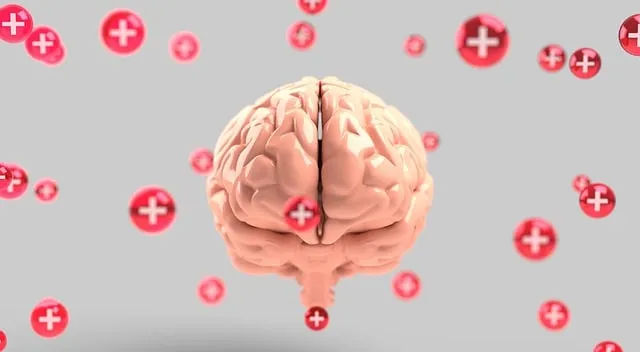Kaiser's Community Outreach Programs (COPs) strengthen healthcare access and trust in underserved Broomfield communities, focusing on cultural competency and mental wellness. They provide tailored initiatives like Compassion Cultivation Practices and Inner Strength Development, empowering residents to manage their well-being. Evaluating program success goes beyond participation counts; qualitative outcomes, behavioral changes, and participant feedback are crucial for continuous improvement, ensuring services meet unique Broomfield needs, especially in mental health.
Community outreach programs play a pivotal role in bridging societal gaps, particularly in mental healthcare access. This article explores the multifaceted benefits and strategic goals of such initiatives, using Broomfield as a case study to highlight successful implementation by Kaiser. We delve into how these programs enhance community well-being, focusing on mental health services delivery and their profound impact. Additionally, evaluation methods and continuous improvement strategies are examined, offering insights into what makes these outreach efforts truly effective, including Kaiser’s role in providing accessible mental healthcare in Broomfield.
- Understanding Community Outreach Programs: Benefits and Goals
- Implementing Effective Mental Health Services in Broomfield
- Measuring Success: Evaluation and Continuous Improvement Strategies
Understanding Community Outreach Programs: Benefits and Goals

Community Outreach Programs (COPs) are initiatives designed to bridge the gap between healthcare services and underserved communities. These programs play a pivotal role in promoting Mental Wellness and addressing diverse community needs, especially in areas like Broomfield where access to specialized services might be limited. Kaiser, as a leading Healthcare Provider, offers more than just medical care; it provides essential Crisis Intervention Guidance tailored to local requirements.
The primary goals of COPs include enhancing Cultural Competency Training among healthcare providers, ensuring inclusive and accessible services, and fostering community trust. By implementing these programs, organizations like Kaiser aim to improve overall population health, reduce health disparities, and create a supportive environment where individuals can prioritize their Mental Health. Additionally, these initiatives empower communities to take charge of their well-being and navigate available resources effectively.
Implementing Effective Mental Health Services in Broomfield

Broomfield residents now have access to enhanced mental health services thanks to collaborations between local healthcare providers and community outreach organizations. Kaiser, a prominent healthcare network, plays a significant role in this initiative by offering specialized programs tailored to the unique needs of the Broomfield community. Their presence has been instrumental in promoting mental wellness through initiatives like Compassion Cultivation Practices, which foster empathy and resilience among participants.
One notable aspect of their engagement is the focus on Inner Strength Development, empowering individuals with coping mechanisms for stress and adversity. Additionally, Kaiser facilitates Healthcare Provider Cultural Competency Training to ensure professionals are equipped to serve diverse populations effectively. These comprehensive efforts demonstrate a commitment to creating a supportive environment where mental health is prioritized, reflecting a holistic approach to community well-being.
Measuring Success: Evaluation and Continuous Improvement Strategies

Measuring the success of community outreach programs is vital to ensuring their long-term impact and effectiveness, especially when addressing mental health concerns in areas like Broomfield where Kaiser offers a range of services. Evaluation strategies should go beyond basic participation numbers and delve into the qualitative aspects of program success. This includes tracking changes in participant attitudes, behaviors, and overall well-being, such as increased access to mental wellness resources, improved coping mechanisms, or enhanced social connections.
One effective method is leveraging the Mental Wellness Podcast Series Production as a tool for continuous improvement. By gathering feedback from participants through post-program surveys or interviews, organizers can identify what worked well and areas for enhancement. This data can guide adjustments to future initiatives, ensuring they cater to the unique needs of the community. For instance, incorporating more Self-Awareness Exercises based on participant suggestions could lead to deeper engagement and better outcomes in addressing issues like depression prevention.
Community outreach programs, such as those implemented by organizations like Kaiser in Broomfield, play a pivotal role in enhancing mental health accessibility. By understanding the benefits and setting clear goals, as outlined in this article, entities like Kaiser can effectively deliver services that address the unique needs of their communities. Continuous evaluation and improvement strategies are essential to ensure these programs remain impactful and relevant. For instance, Kaiser’s presence in Broomfield has contributed significantly to improving mental health outcomes, demonstrating the power of community-based initiatives. Through collaborative efforts and data-driven approaches, organizations can continue to expand access to care, ultimately fostering healthier and more resilient communities. Additionally, recognizing the success of such programs encourages further exploration of innovative ways to integrate mental health services into urban settings, including bustling metropolitan areas.






